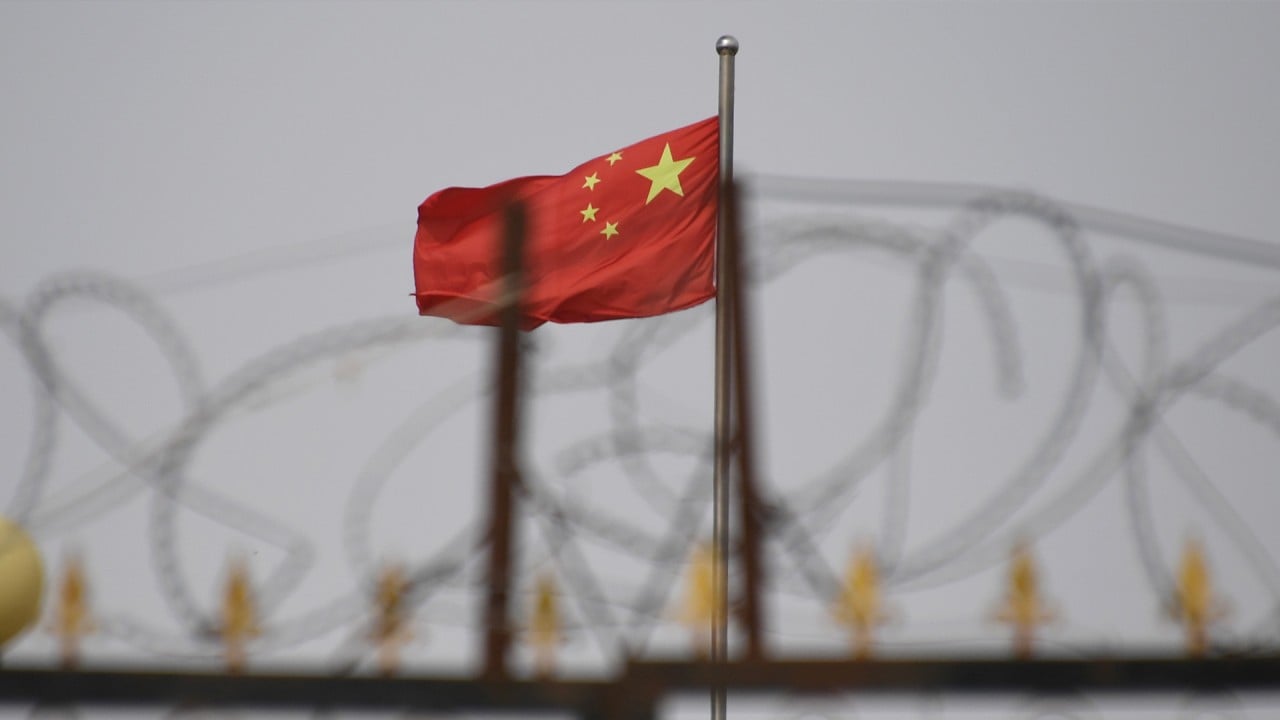
Germany wants independent China experts as concerns about Confucius Institutes and Beijing’s influence over universities grows
- Berlin says it is still keen to engage, but does not want to rely on the Chinese-funded institutes for expertise
- Angela Merkel has been a leading supporter of engagement, but the elections later this year could see a shift in Berlin’s stance
Germany is building up its own knowledge base about China as it seeks to diminish Beijing’s influence over its universities.
The education ministry announced on Tuesday that it was investing €24 million (US$28.4 million) in a programme running between 2017 and 2024 to strengthen “independent China competence” in its universities and research institutes.
The aim of the project is to support science and research cooperation with China that is “based on European values”, according to a statement from the education ministry.
Anja Karliczek, the education minister, said the country still wanted to engage with China and needs more talents who understand Chinese culture, language, society and history.
But she added such efforts must be conducted independently by Germany, and called on universities to cut off cooperation with the Confucius Institutes, a state-funded educational partnership that offers courses in Chinese language and culture.
China policy divides Germany’s biggest party ahead of election
“I do not want the Chinese government to influence our universities and our society,” Karliczek said. “We have left too much room for the Confucius Institutes and done too little to build up independent competence in China in Germany.”
Starting in 2006, 19 Confucius Institutes have been launched across the country. At least two have since closed due to concerns over “political influence and information leaks”.
Others have continued to operate and some universities have previously defended them from charges they are being used to advance Beijing’s agenda.

“Economic relations with China are close, and we also have common interests in areas such as climate protection. But we must also address it openly: we are in a systemic competition with the People’s Republic,” Karliczek said.
“We want to enter into this competition on an equal footing and make it mutually more value-added. To this end, we must ensure that our companies find enough employees from Germany who know the country, people and language for cooperation with China.”

03:36
Beijing hits back at Western sanctions against China’s alleged treatment of Uygur Muslims
The German elections in September may herald a shift in Berlin’s approach to China. Chancellor Angela Merkel, a leading advocate for engagement with Beijing, will step down and Annalena Baerbock, the Green Party candidate for chancellor, has called for a policy of “dialogue and toughness” towards China.
Despite the political tensions, economic ties between the two countries remain strong. China was Germany’s biggest trading partner for the fifth consecutive year in 2020, with a trade volume of €212.1 billion, according to China’s ministry of commerce.
Barthélémy Courmont, a senior research fellow with IRIS, a French think tank, said there is a growing interest in Chinese studies across Europe, yet the Beijing-financed Confucius Institutes had been the main source of knowledge.
Clues to China’s future ties with Germany hint at a relationship in flux
“The idea is to learn more about China, but not by China,” he said. “Germany and China will remain major economic and trade partners. And the cooperation is likely to increase.
“Yet, the German government believes that Berlin must confront Beijing on various issues such as human rights, and therefore keep its independence on addressing and defending its values”.
Song Luzheng, an international relations researcher at Fudan University, said there would be little change in German policy before the election, and that cooperation between the two countries in science was unlikely to be affected by a clash in values.

“Germany may engage in systematic competition with China under the EU framework, but as a single country it won’t be able to compete with China systematically. Also, there won’t be any substantive policy on China ruling out before the election,” he said.
“To a certain extent Germany relies on China economically. Despite the minister Karliczek’s appeal to cut off cooperation with Confucius Institutes, it is unlikely to officially become a policy of Germany because it will have a huge impact on China-German ties and thus affect the German economy”.

